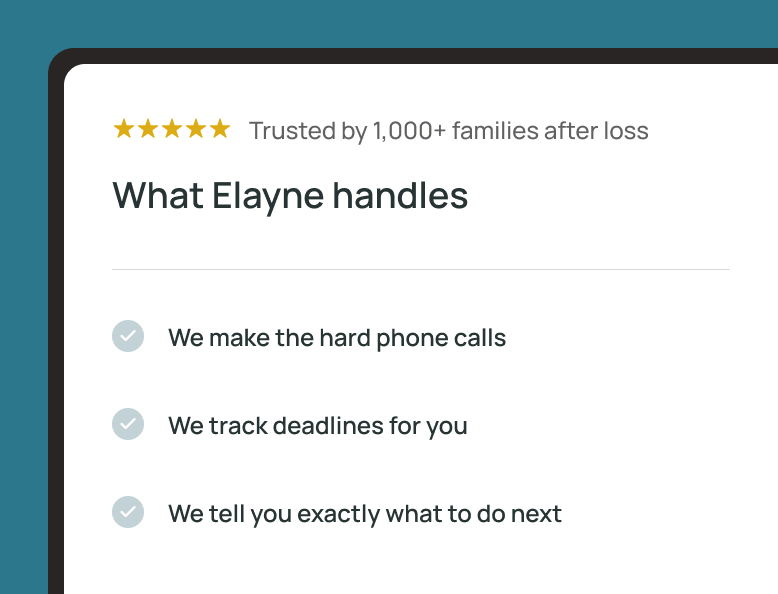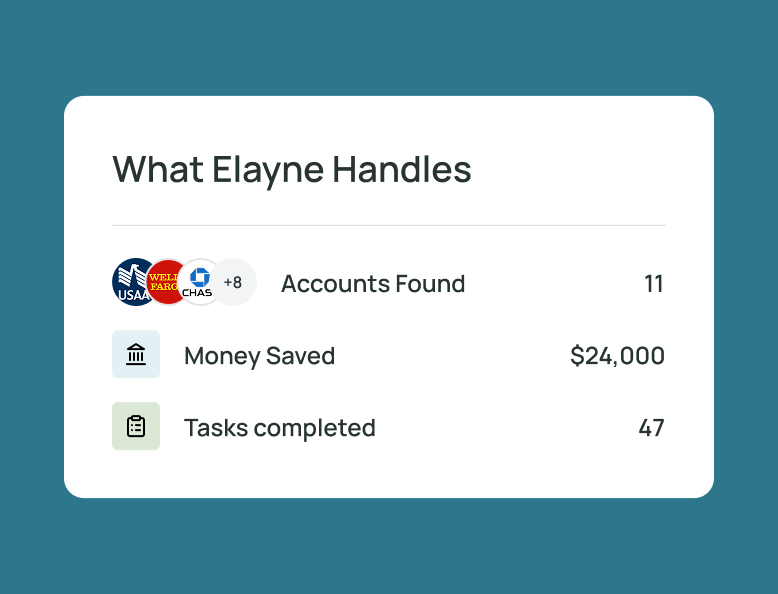Unfortunately, they don’t have a class on eulogy writing in college. It’s a complex process for many, compiled by grief; it can feel immobilizing. So, how does someone stand in front of a room full of people and talk about the person they just lost?
To start, take a breath. Recenter yourself. Breathe. You get through a eulogy one word at a time. When speaking at my grandmother’s funeral, I was dumbfounded about where to begin. Grief struck, anxiety took over, and I panicked.
This article will cover everything you need to write a heartfelt eulogy, deliver a strong message, and feel confident speaking in front of your friends and family.
{{blog-cta-admin}}
How to Write a Eulogy that Leaves an Impact
Few people have experience writing and delivering a lasting eulogy. You’ll want to engage with the audience while honoring your loved one. Speak honestly, but try not to offend an entire room. Have grace and compassion, but don’t freeze while speaking. The best place to start is from the beginning. Spend time outlining the topics you’d like to cover and flesh out your speech slowly. Tell stories, hobbies, jokes, and memories that encourage conversation and admiration.
The Daunting Task of Public Speaking in Grief
Public speaking is an intimidating task for many people. Delivering a speech becomes even more complicated when delivering the eulogy during a wake or funeral. You’ll likely be emotional, navigating your grief, trying to support friends of those who are grieving.
Preparing for the task can help remove any anxiety or fear, especially if it’s your first time delivering a eulogy. Try to keep the eulogy between three and seven minutes. Aim for somewhere in the middle, so it’s not too short and doesn’t drag on. Practice saying the speech aloud once you’ve written the copy and begin timing yourself. Take your time and maintain eye contact with your audience, as it builds a deeper connection and trust with your audience.
11 Tips for Crafting a Heartfelt Eulogy
To help you craft a heartfelt, lasting eulogy, follow these 11 tips:
Always Be Authentic
No matter how hard we try, we’ll never make everyone happy. We worry about what everyone else will think, instead of reaching deep inside to find our voice. Write from the heart, approach your speech with vulnerability, and write something the departed would appreciate and enjoy.
It’s Okay to Use Humor
Although a funeral isn’t the ideal venue to try out a comedy routine, there’s nothing wrong with telling a few jokes at the beginning of your speech to relax the crowd. Most people attending funerals are devastated and nervous, making it exceptionally difficult to connect with them. Keep all jokes tasteful, clean, and good-spirited.
Celebrate the Highlights and Unique Qualities of Their Life
Honoring someone starts with celebrating life achievements, but that’s not the only important aspect of our unique qualities. Take a moment to truly reflect on who they were as a person and remember the best parts of them. Try to consider what makes them special. Find something they accomplished that mattered deeply and share it.
Take Your Time When Speaking
Public speaking isn’t easy, especially when you’re grieving. Remember to slow down, breathe, and take a moment to collect yourself if necessary. It’s okay if you have to pause and recollect your thoughts.
Use Body Language
Some of the most memorable eulogies involve body language and animated gestures. Bring the level of energy and attention your loved one deserves. Remember, you’re not just saying a few words; you’re breathing life into their memory.
Write the Eulogy Down
While you shouldn’t read a eulogy word-for-word, having an easy reference is helpful when speaking. A eulogy isn’t easy; no one will judge you for a few prompts.
Always Tell a Story
Most eulogies that leave an impression will always start with a good story. Stories connect the brain with a powerful chemical called oxytocin, which makes people feel good. The process connects our eulogy with meaning and positive connection, which people need during mourning.
The Eulogy Doesn’t Have to Last Long
When planning the right words to say, sometimes, less is more. Try to keep your speech heartfelt, sweet, and on the shorter side. After all, most people won’t remember everything you said; they’ll likely remember a few words from the entire eulogy.
Try Reading Your Eulogy Out Loud
A different tone and voice always come with the written word, so try saying the speech a few times in front of the mirror. Pay attention to any problematic sentences or phrases that don’t sound right.
Ask for Feedback Whenever Possible
After you’ve practiced your speech, ask a close friend to listen to the eulogy before you deliver it. Having another person listen to your speech can help you understand timing and any difficulties they notice.
Try to Offer Something Inspirational
Most people will remember the first and last things you say in a eulogy. Find something memorable that means a lot to the individual who passed whenever possible. Look for a powerful quote, something the departed shared with you, or a few words from the heart.
The Importance of Writing and Practicing Your Speech
Writing a speech isn’t just good for memory; it’s a powerful tool that can help you deal with grief and feelings of loss. While we’d like to believe we can speak from the heart, there’s a good chance stage fright, emotion, and anxiety may take your words away the day of the funeral. A great eulogy is well-spoken, practiced, and poised.
Read over the eulogy multiple times until you know what’s written down. Read it yourself, in front of your friends, and ask them for feedback. Ideally, you’ll want to recite the speech so often that it doesn’t look like you’re reading from a script.
Addressing the Fear of Crying During a Eulogy
While everyone might worry about crying during a eulogy, it’s an entirely normal and natural response to losing a loved one. No one at the service will think anything less of you if you cry during your speech. To help you stay in control, here are a few tips to prevent crying during the eulogy:
- Practice your speech regularly and often. The more often you practice, the more you’ll remember the words from memory. Practice helps remove some of the pain, even if temporarily.
- Blink quickly if you feel the tears starting. Blinking helps clear tears in the eye and limits new ones from forming.
- Stop talking for a moment. If the words become too intense, briefly pause your speech to gather your thoughts. Take a deep breath, focus, and remember that everyone there feels some variation of your grief.
- Distract yourself from the crowd. Take a quick look into the crowd and distract your mind. Try to find a friendly face and smile gently at them.
{{blog-cta-admin}}
Final thoughts
While a eulogy may be intimidating, it’s an opportunity to share sweet memories, kind words, and impactful stories with friends and loved ones. Writing a great eulogy is more than just chronological events. It takes time, finesse, and personality to deliver a lasting message. Try to write a speech your loved one would enjoy, including the odd joke or story.
Try to follow these eleven tips when writing, take a deep breath, and remember that everyone there feels some variation of grief. They want to hear your words, remember your loved one, and say goodbye one last time.













































